Why You Are Obsessed With Sugar (and How To Fix It)
Why You Always Crave Sugar & 5 Easy Ways To Stop IT
Sugar cravings - we all know the feeling, and let’s face it, we all get them. They can be as extreme as wanting to eat a whole tub of ice-cream after a full meal, or as ‘commonplace’ as a meandering thought toward the leftover cake in the fridge at home when you’re bored at work.
But why do we get them, and is the only way to stop them cutting sugar for good? Today I go in-depth into how you get sugar cravings, why you get them, how to stop them, and how much sugar you should have (if any).
Sugar cravings - we all know the feeling, and let’s face it, we all get them. They can be as extreme as wanting to eat a whole tub of ice-cream after a full meal, or as ‘commonplace’ as a meandering thought toward the leftover cake in the fridge at home when you’re bored at work.
The problem is, that in many cases, these seemingly at first innocent cravings begin to feel relentless, and are notoriously hard to resist. 🧁
At least they were for me.
I used to really struggle with my urges for sugar, so much so that I tried everything I could think of to get rid of the cravings, like replacing candy with strawberries or ice-cream with a bowl of honey and yogurt (a big no no by the way).
But no, I wouldn’t be able to hold off and I’d end up reaching for the Milky Way Midnight bar at the end of the day, with all of that sugar hitting my blood stream and soothing my nerves.
But we all know sugar’s no good for us, right?
I mean, the list of its negative side effects on your health just doesn’t end: increased cholesterol and blood pressure, cancer, diabetes, and so on.
Let alone the weight gain.
I’m not going to try and sound like your biology teacher here, but the technical reason for this is that sugars are carbohydrates, which are about half glucose and half fructose. Consuming glucose stimulates your pancreas to secrete insulin, which causes your body to store fat. 😨
So, low and behold, that number on the scale goes up.
Why do we still want to eat sugar, even after all the dangers we know come with doing so? Well, sugar is even more addictive than cocaine. Yeah, you read that right.
A study in 2007 found that 94% of rats tested would rather choose artificially sweetened water over cocaine (after being sensitized to the drug). Wow. 😲
Of course, it’s still a bit of a stretch to say that daily consumption of sweet treats is as dangerous as a drug problem in humans, but that study should still be a concern to us.
Sugar DOES fire up dopamine and light up your brain in the same manners as drugs, and there’s gotta be a problem with that - especially given the issues that come with high sugar consumption, problems I have had first hand experience with.
When MY sugar addiction was at its height, I was in really bad shape, both physically and mentally.
It’s a long story, so I’ll cut it down to the short version for ‘ya.
Basically, a few years ago I was an avid sports player (all kinds) - I just loved to move - but I badly (and I mean realllyyyy badly) injured my ankle - and injury, in fact, I’m still affected by even today.
I wasn’t allowed to move around at all, and even if I wanted to, the pain was just too much.
To make things worse, the following January is when I started studying for life changing exams. Full of stress that I wouldn’t score well, that I wouldn’t be good enough, and full of a budding depression that I couldn’t channel my feelings through activity, I turned to food, but more specifically, I turned to sweets. 🍭
I’ve always had more of a sweet tooth (though it died back a bit when I got to my teens), but in an effort to comfort myself, I began relying on sugar as a daily pick-me-up.
Long story short, it was a bit of a disaster. I gained weight, I felt inflamed and sick, and my hormones went way off balance.
I knew something was seriously wrong, and I knew it was likely my diet.
I started researching sugar and how to reduce it in my diet, but no matter how hard I searched I couldn’t find anything that could really help. Out of desperation, I set about developing my own system that would help me heal myself and my sugar addiction, a system that would end up becoming my Cut the Sugar Program. 😊
That program, which combines practices like meditation 🧘, mindfulness, journaling and other diet changes, is what really helped me get free once and for all.
My journey is what lead me to want to create a place where people could get through experiences with care and support, and without all of the trial and error that I had to get past.
So, today, as I sat and enjoyed a Starbucks frappe, my mind went back to thinking about my sugar reliance - how even a few years ago I couldn’t drink that very drink without it triggering a craving for more sweets - I found the inspiration to write this post today.
I want to share with you guys, using the knowledge I have from my own experience 😇, how to understand and recognize your own sugar cravings, along with some advice on how to quickly conquer them.
Before I get started, I want to clarify one or two things.
I personally believe in balance - in every facet of life, but especially when it comes to food. I think having sweets every so often is perfectly okay.
What I’m talking about when I say ‘cut down on sugar’ is really ‘not eating sugar every day or every other day’. Having some cookies on Saturdays 🍪 is something I think is completely okay, but eating a cookie every day is something that isn’t okay.
A sugar craving is kind of like your body's way of telling you something. You need to get to understand it.
Your body gives of a lot of signals to you everyday, and we sometimes can pick up on these signals to improve our health - however, our body's signals can be very subtle, so it’s quite easy to ignore them unknowingly. 🤔
The cause(s) behind your sugar cravings are very challenging to notice if you’re not aware, as when we get these cravings, we tend on act on them without any further thought.
While it’s easier for some people to overcome cravings with ease, other (most) people might have some trouble.
Which brings me to the first common question I get about understanding our sugar cravings, which is:
does your body actually NEED sugar?
Well, yes.
BUT, what we’re talking about here is both natural sugar (like those found in fruit) and refined sugar (the type you’ll find in baking and processed foods).
The better answer would actually be that you need NATURAL sugars, but NOT the refined kind; 🍩 meaning that if you never ate a tablespoon of granulated sugar again, you would be totally okay.
Everyone needs sugar to maintain proper blood sugar levels in the body.
Sugar is energy for your brain, muscles and organs - they all need glucose to function. The best form of this energy is from fruits, vegetables and complex carbohydrates that have fiber, vitamins and other minerals our bodies need.
What Happens When I Eat Sugar?
Now you know that you don’t need processed sugar, let’s talk about what happens when you do eat it. We’re ‘bout to get sciency my friend. 🔬
Your pancreas releases insulin to round up sugar, and the first place your body tries to store sugar is in muscle. The problem is when your muscles are full, it stores excess sugar in fat cells - causing nightmarish cellulite. To make it worse, the more sugar you eat, the more work your pancreas and liver have to do to maintain equilibrium.
With frequent insulin spikes from the sugar, come more insulin and leptin resistance.
This means more insulin production, more fat storage and more insulin resistance. 🧪 The hormone leptin controls hunger, manages fat metabolism, and monitors how much energy is circulating in the body.
Leptin is actually produced by fat cells, and those who have difficulty trying to lose weight generally have leptin resistance.
Leptin resistance is perceived by the body as starvation, which causes the body to store more fat. It also stimulates formation of reverse T3 (thyroid hormone) which blocks thyroid effect on metabolism.
Lost? 😐 Don’t worry, let me summarise.
A person’s body can believe it’s starving (when it's not) and that causes your body to keep telling you to eat more - even though it's just excess calories that youi dont need.
It’s a terrible cycle, which essentially, leptin resistance can trigger. 😔
Some of the causes of high leptin include stress, high insulin levels, overeating, over exercising, and lack of sleep, but I’ll explain that soon. The scary fact is that insulin and leptin resistance put you at risk for type II diabetes if you’re: overweight, sedentary, or have an unhealthy lifestyle.
Whether you’re skinny or overweight, if you fit any of those 3 categories it can happen to you - no discrimination.
Sugar is getting scarier and scarier! 😲
What sweet, sweet sugar is doing to your body is not pretty is it?! At this point though, you might be wondering, “If sugar is doing all this damage to my body, why do I crave it so much - wouldn't my body want to deny the fancy?”
Sorry, but no.
Why You Crave Sugar Despite Its Negative Effects
By now, you definitely know this - sugar is addictive.
It has the same effect on the body and brain as drugs do, and at the root of the problem it processed food. It releases dopamine in your brain.
Sugar cane in its natural form has fiber and nutrients - I mean, yes, raw sugar cane shouldn’t be eaten every day, but modern day food processing takes things to a whole new level.
It’s way worse for you and way more addictive, as the raw cane is stripped of its natural nutrients.
Particularly horrible types of manufactured sugar, like corn syrup, suppress hormones leptin and ghrelin - the hormones that control when you feel full and tell you when to stop eating. This is exactly why you can eat candies, chocolates, sugary breads, drink soda, etc all day and never feel full, but still gain weight.
Many other reasons such as lack of sleep, stress and hormone imbalances cause intense sugar cravings too. I'll get to this in a minute.
The more we get into why you crave sugar, the more complicated it’s going to get. Your body may want the energy, hankering for a reward, and so on. Because of this, I’m going to break it down bit-by-bit and simplify it for you.
Why You Crave Sugar: The Breakdown
1. It’s Your Happy Habit
Simple daily habits are formed deep within your brain, and your brain won't leave you alone until you fulfill them. Habits are a part of human nature, and can work with or against you.
Neurochemicals in your brain can cause an addiction to sugar, like I mentioned above, similar to that of illicit drugs and alcohol. 😮
Changes in dopamine receptors in the brain appear to have an impact on addiction to sugar, and as a result of this hormone response, your brain will habitually desire sugar the way it does other harmful compounds like drugs and alcohol. 🤤
In other words, its consumption becomes something your mind can’t end your day without doing.
2. It’s Your Reward and/or Your Comfort
A lot of the time, people turn to fitness or shopping as a reward system for motivating them in their daily routines or ultimate goals, and comforting themselves during low moments. However, another common turn-to is food, and part of that, sugar - not the best idea.
While rewarding a work deadline or boosting your mood with a whole box of donuts for one may seem harmless - it’s only once in a while, right? - the results are anything but. Again, you’re making sugar into a habit - it’s in the form of an occasional reward, but still a habit. 🍟
After all, if you met that work dealine or felt bored today and allowed yourself a treat, what’s to stop you from rewarding yourself for completing another work goal or nursing a low mood tomorrow?
3. It's Pathologic
Your brain naturally needs glucose to properly function, so it makes sense that the brain will crave sugar in order to get it. 🍰
The body breaks down all carbohydrates into simple sugars though, so you really don’t need to eat sugar to feed your brain glucose. Your brain is probably causing you this craving as a way to get what it wants, even if it doesn’t need it.
As Very Well Mind puts it, “In early humans, this stimulus helped lead them to calorie-rich foods, which aided survival when food was scare.”
So, the problem is that our brains haven’t yet caught up with the fact we don’t actually need this drive anymore.
Now we’ve delved deeper into the technical reasoning behind our sugar yearnings, I want to get into the more everyday triggers behind them and what the yearnings could be telling you about your health, so you can tackle them with confidence.
Daily Causes of Sugar Cravings
You Finished a Hard Workout 😅
Working out is amazing for your mind and body, so don't stop doing it - just recognise that you’re likely to crave sugar directly afterwards.
Make sure that after your finish you check your cravings - they’ll often be more prevalent after you had a personal best in whatever workout you did, as your body will be depleted of glycogen stores. You are likely to be craving sugar to replenish this - make sure not to.
Your Diet Is Not Good
Sugar cravings could be due to a poor diet. 🍕
If your diet already includes soda, bagels, chocolate bars, cookies, and sugary lattes, then your sugar cravings are most likely because of how you have been eating. It’s simply the type of food you’ve trained your body to like and to want. The more sugary foods you eat, the more your brain will want them.
You Like Using Artificial Sweetener 🥤
You might know it already, but I am MASSIVELY against using any kind of artficial sweetener. Why?
Because those sweeteners can have so many negatives effects on your health, and possibly even cause cancer - yes, CANCER. Pretty scary.
If that's not enough to get you to quit sugar free replacements in yo' lattes and such… maybe because you think that it's helping you destroy those sugary cravings for whipped cream and candy, this next one might just be the reason to get you to stop using them.
When you are using those alternatives, say Splenda, for example, it's actually just tricking your mind into thinking that you consumed something SUPER, SUPER SWEET, way sweeter than even SUGAR.
You guessed it: this only makes your brain crave foods and beverages that are even sweeter. 🤦 Kinda defeats the point, right?
If you do still want a good sugar alternative though, I do have a more natural option for you.
I only ever use Natural Pure Stevia, because it is the purest and healthiest sugar-free sweetener out there. I also find it doesn’t make you crave sugar either, as long as you only use it in moderation.
My favourite is the Vanilla Crème Drops by Sweetleaf. ☕ #SugarFreeFrappeLife
You’re Already In The Habit
I know, I’m going on again about habits, but they really are a main cause of cravings.
Consider this: you grab a simple latte that's filled with sugar every morning before work at your local Starbucks at the same time of day, everyday. ☕
Your body will now adjust to these daily cues - your mind will automatically write this into your daily routine. This is the most common and quickest way to start a habitual sugar craving. If you were to stop going to get your yummy, sugary latte every morning, your brain would crave the sugar that you would normally have at that time of the day.
What Are Your Sugar Cravings Saying About Your Health?
Now you have some info on sugar cravings, the causes, and what sugar does to you, let’s see what they could be saying about your health in a broader scope.
1. You could have an insulin problem.
FACT: Almost two thirds of Americans are overweight because they are way overeating sugar and refined carbs. 🥨
The insulin-related problems this causes can be metabolic syndrome, pre-diabetes, heart disease and type II diabetes.
Even if you’re slim, you could still be suffering from one of these problems, so you might want to double check regardless and make sure you’re all clear.
2. You have sugar addiction. 🎂
Another signal your body could be sending is that you have gone full-blown sugar addiction mode, and the cravings you are having for cookies, ice cream, candy, chips, are a result of that addiction.
If you pick on this signal, it could indicate that perhaps you do not need sugar, and that your brain is demanding that you to satisfy its yearning. If you think this might be you, please do check out my program for sugar addiction here, to learn how exactly you can break it!
3. You’re lacking nutrients.
Your sugar craving could also be telling you that you’re lacking very key nutrients in your diet. For example, you’re not eating enough vegetables and or fruit (in moderation) and eating way too much junky food. 🥕
Have you ever noticed how you can eat a pear, carrot or an apricot (all of which are sweet) but not develop a constant craving for them again and again, the way you do with sugar?
How does this work?
Carrots, apricots and pears all have naturally occurring sugar, right? Yup, they do.
So what’s up with this?
Well, the answer is that these foods have vital minerals and vitamins your body needs. They also contain healthy fiber to balance the sugar, which means your blood sugar doesn’t surge. The fiber helps prevent the sugar from causing such a large a spike, through absorption. 🍐
Your body is really smart, and it does try to tell you what it needs.
Your sugary cookie cravings is your body’s way of saying, “You’re not giving me what I need, please no more feeding me junk and FEED ME some real food!”.
Let’s get into more detail.
It’s most likely that your ‘lack of nourishment problem’ is something called hypoglycemia.
You know what it feels like to have low blood sugar; like when you go too long between meals or snacks, and you get a headache, irritability, or weakness. In these scenarios you probably then want to eat something high in sugar or calories, like candy or chips, and quickly.
When our blood sugar levels drop, we lose our ability to control our eating, and we crave calorie-full sweets and snacks.
Then when you eat junk food - basically ‘empty’ snacks - your blood sugar levels spike, and then drop dramatically.
You then get lethargic and hit another low, and the craving for even more high-calorie foods kicks in again. Vicious cycle!
In order to avoid this, I suggest and what works for me is eating foods that are high in fibre, such as vegetables and pure whole grains. These are digested more slowly than low fibre, processed foods. 🥕
Fiber slows the digestion of food, which helps prevent the spikes in blood glucose (blood sugar) that can occur after a low fiber meal. Fiber also slows the absorption of carbohydrates from food, lowering their glycemic impact.
One more reason could be a loss of essential minerals.
When you eat something sweet and sugar goes into your body, the sugar blocks the absorption of essential minerals - including SUPER IMPORTANT calcium and magnesium. Scientific studies have proven that a deficiency in these two micronutrients actually causes sugar cravings. 🥗
Tip: If you’re planning on eating sugar, I suggest eating it with something like a fiber rich salad (mmm… salad and hummus anyone?).
4. You’re bored.
Everyone has to do boring tasks at one time or another, so maybe it's just that.
You could be having a sugar craving simply because you’re bored. Did you notice that your cravings mainly happens at times like when the kids are out of the house, or a friend cancelled going out?
If yes, then it could mean you are bored and having a craving. Simple as that. 💤
5. You often skip meals.
A common reason why you might be craving fatty and sweet food is that you don’t eat often enough (outside of an occasional fast). It’s a bad practice especially prevalent among people trying to lose weight.
In fact, I’m guilty of doing this myself.
I know it seems like a ‘logical’ way to save up free calories for a future meal, or to make up for a little diet slip up, but it’s really not good for you.
As I learned the hard way, skipping meals can worsen your sugar cravings, and it’s usually caused by a resulting reduction in blood sugar. 🍫
When you skip a meal or go a long time without eating, your body goes into survival mode. This causes your cells and body to crave food, which then causes you to eat a lot when you do eat.
🥓 What makes it worse is skipping meals can cause you to not eat enough in general, leading to:
• Low Energy Levels. Calories are units of energy your body uses to function.
• Hair Loss. Losing hair can be very distressing.
• Constant Hunger.
• Inability to Get Pregnant.
• Sleep Issues.
• Irritability.
• Feeling Cold All the Time.
• Constipation. 💩
I only ever suggest skipping a meal when you’re not hungry (a non-daily thing though) or when practicing properly researched intermittent fasting.
6. You have a physical or mental imbalance.
Finally, your sugar craving could also be telling you that you have a some sort of imbalance in your life - like I once did. Too much stress, lack of sleep, fatigue, and hormone imbalances all cause cravings. 😪
When I help my Goal Getters correct these basic things - things that people don't tend to connect with bad health and cravings - their sugar cravings resolve far more easily.
The first thing you’ll want to address is your sleep pattern. You’re more likely to crave sugary, salty, and fatty foods after a poor night’s sleep.
The body needs a certain amount of deep sleep in order to replenish your body, and when it doesn’t get enough, it becomes super susceptible to sweet cravings the next day.
The reason for this is that sleep deprivation blurs the brain function related to eating healthy foods. 🥴
If you’re not a great sleeper, I totally get. I didn’t used to be either. I used to suffer from sleeping issues as a child, which then developed into insomnia during a period of my teens. Luckily I was able to resolve this problem, and I actually did a blog post on how I did that here.
The second thing to address is your level of stress.
It’s a pretty bad cause of many afflictions, but especially sugar obsession. Stress is normal. A little bit of stress in your day is considered healthy and maybe even necessary. But, if you’re experiencing chronic levels of high stress, it can spur on your fancy for sweets.
As someone who was chronically stressed (due to injuries, lack of confidence, body image issues, and so on) for so long, I can personally attest to this one.
I mean, who doesn’t think a chocolate bar at the end of the day wouldn’t make them feel better? Of course, it never does it the long run. 🙃
When we’re stressed out, a hormone called cortisol (your body’s main stress hormone) increases its level in our bodies, and we crave sugar because if we eat some sugar, we will actually get another hormone called serotonin, which is a calming and relaxing hormone.
It’s basically your body’s way of finding ‘balance’.
You see, stress made our ancestors eat more, but back then, it was a good thing. They were trying to survive, and stress helped them find and eat sugary sweets like fruit, as it meant better nutrition. 🥳
The problem with today is that our stress is triggered almost constantly by family, work, friends, societal pressures, etc., so that extra food isn’t actually a good thing! 🤨
The good news is that by recognising the reason for your craving when you experience stress, you can make better choices.
So, How Do I Stop Craving Sugar?
Know you know exactly how sugar works in the body, if we need to eat it, and its general (and more scientific) causes, you know A LOT. However, there is one more super important thing we need to cover before you’re pretty much a sugar-fighting ninja:
How to stop the cravings.
Well, sugar cravings are part of a vicious cycle, but luckily I’ve got five tricks that’ll help ‘ya kick those nasty urges out the front door!
Before we start I just want to say that to start off, having a quick protein filled snack (check the label if you’re not making it yourself) will always help nip those cravings in the bud.
But, the best way to crush your cravings is adding to (or modifying) your diet.
I want you to add more plant based, fibrous foods like leafy greens, starchy vegetables and fruits, along with complex carbohydrates and healthy fatty foods like boiled eggs, seeds and nuts. 🥚🥜
When you eat loads of plant-based and protein filled foods in a balanced way, your mind and body will feel way more satisfied, meaning your body will naturally stop craving sugar.
Quick side note!
If your current diet is low-fat, and you work out a lot but don’t seem to lose body fat, make sure to look at the sugar content in the food you’re eating. MOST low-fat and fat-free processed foods make up for the reduction in flavour (that usually comes with the full-fat version) with added sugars, like high fructose corn syrup.
This means you’re likely eating more sugar than you think. 😧 In any case, I whole-heartedly recommend full-fat foods, just as long as they are healthy (and sugar-free) fats, like Greek yogurt.
Plus, eating a diet higher in healthy fats will keep you fuller for longer - reducing any cravings. Eating healthy fats is one of my favourite strategies for healthy living (but I won’t get off track here)!
Back to my top 5 tips for crushing sugar cravings!
1. Eat More Fiber
As aforementioned above, fiber-rich foods are a great option for combating sugar.
Fiber is so often underestimated, as people don’t tend to realise that is plays a SUPER valuable role in your overall health and wellness. High fiber diets have been shown to improve colon and cardiovascular health, as well as a reduce risk of cancer and obesity - yay! 🥦
Fiber is a starchy substance that passes through the digestive system untouched, meaning that it is not processed at all in the stomach or intestine.
Eating fiber will help slow the absorption of the foods you eat, and help to curb cravings you have by keeping you full for longer. Whole foods like celery, carrots, and whole grain rice are all great options, as they are full of natural fiber.
Basically, fiber will help you reduce your overall caloric intake while creating a slight uptick in how many calories you burn throughout the day - pretty cool right?
Let alone the fact that it can also reduce the risk of stroke, hypertension, and heart disease - can I get a high five?
However, typical American diet is sadly really lacking in fiber.
Average fiber intake for all Americans over the age of two is 16 grams a day, with women consuming about 18 grams daily and men 15 grams on average.
Current guidelines recommend that adults consume between 25 and 38 grams of fiber every day; that’s a pretty big difference it fiber eaten and fibre recommended.
But hold up!
Don’t go too fiber crazy, because too much of it can move food through the intestines ‘too quickly’ - meaning fewer minerals will get absorbed from food. 🚽 Also, it can result in un-comfy gas, bloating, and cramping, especially when fiber intake is dramatically increased - like overnight.
Speaking of high-fiber foods, almond flour contains a sneakily large amount of fiber.
For more on that, (and why you should avoid almond flour) check my blog post here.
2. Eat More Lean Protein and Fat
Consuming more lean protein like eggs, salmon, halibut, and chicken can help keep your tummy full for longer periods of time. This means that your blood sugar levels will stay more balanced, and that you’ll experience fewer sweet cravings.
As for healthy fats, well, I can’t praise them enough. 🥑
Eating lots of healthy fat in tandom with protein at breakfast time helps stave off hunger and energy crashes, and, you guessed it, prevents cravings.
I always recommend high-fat meals in my Cut The Sugar Program, and in fact, all or my programs!
When you’re not starving, you’ll be more able to make a healthy decision for lunch, as you’re not being influenced by your empty belly.
3. Drink More Water
Drinking water is the simplest, and often most overlooked, habit you should have for optimal health. Your body needs water for EVERYTHING.
Water is the most abundant substance in your body, meaning you need to replenish your water stores as often as possible - many of your body’s processes are linked with your overall hydration.
Sugar cravings can occur as a result of being thirsty, so replenishing the water in your body is often a quick little trick to kick yo' cravings. 🌊
Plus, the more you dehydrate, the more likely it will be that you will develop some kind of hormonal imbalance.
Drinking about seven to eight glasses of water every day is optimal, and make sure your water is as pure as possible - no sweetend flavoured waters please.
4. Make Some Healthy Substitutions
A great way to stop sugar cravings from affecting you during your long days is to swap out unhealthy foods with healthy foods. 🍎 This is quite challenging I know, but it is one of the most effective ways to cut back cravings.
If you simply switch out your candies or chips (or whatever unhealthy foods you love) for pure fruit (in moderate amounts) or vegetables, you’ll be telling your brain that you no longer intend on loading up on sugar-laden junk foods, and with that, you’ll be exponentially decreasing your body’s natural yearning for them.
Try prepping some sugar-free dried fruits (in moderation), vegetables, nuts (which actually curb appetite), or even some sugar-free hot tea, to turn those snacks breaks into healthy ones.
5. Steer Clear Of Artificial Sweetener (Well, Artificial Anything)
I mentioned this one earlier, so I won’t go on too much.
Most artificial sweeteners have detrimental effects on the body, so it’s best to completely avoid them. Again, if you do still want a good sugar alternative though, I do have a more natural option for you.
I like Natural Pure Stevia, because it is the purest and healthiest sugar-free sweetener out there. ☕
I also find it doesn’t make you crave sugar either, as long as you only use it in moderation. My favourite is the Vanilla Crème Drops by Sweetleaf. #CutTheSugar
That’s all five! Even though these changes are super simple, they are all really effective - take it from me, a recovered sugar obsessive! 🍬
Plus, once you’ve broken up with sugar for a few weeks, you should totally start to notice the decreased cravings, and will be really surprised at just how much better you feel.
A low sugar diet can reduce acne, brain fogginess, joint pain, bad sleep, bad digestion, help you lose weight, and much more!
You control sugar, it doesn’t control you - you’ll only ever gain from getting a handle on the habit.
Okay!
I know there still might be one thing you do want to know though - can you still eat sugar? And if so, how much can you have? Does it have to be completely natural, or can you have a little processed sugar each day?
Don’t worry, I gotcha covered! 🙏
How much sugar should you eat?
According to WHO (World Health Organisation), daily added sugar intake should be less than 10 percent of total energy intake, which to put visually would be 6 (or fewer) teaspoons a day.
In my opinion, that’s still way too much.
Ideally, you should avoid added sugar whenever you can, and focus on natural sugar intake. That would be about 2-3 servings of fruit per day.
Now, now… wait up a second… before you start adding another two fruit salads to your daily meals, in actual fact you likely don’t need to - the reason for this is that you’re probably already getting your daily intake and more.
Look at it this way: Just one cup of milk 🥛 has 3 teaspoons of natural sugar, and just one slice of your average processed bread 🍞 can be as high 2 teaspoons.
So, if you eat the average diet, you likely get enough (if not too much) sugar already, and that’s before we even get to desserts and sweet drinks.
The best thing you should do is to go over how much sugar you are currently eating per day, and then workout how you can cut or reduce the added sugar from your diet. From there you can work in a moderate amount of fruit, of course balanced with the sugar coming from flours, milks, etc.
Now, keep in mind that I’m not saying never to eat processed added sugar again, I’m simply saying to limit it. ⚖️ I’m all about balance, and I just don’t think that it would be very realistic.
What I like to do is go completely ‘clean’ from Monday to Friday, meaning I don’t touch anything with added sugar (no breads, drinks, desserts, etc.), and I limit my fruit intake to about ¾ of an apple every day, or every other day depending on whether I fancy it.
Then on Saturday I basically eat anything I want 🥞 - sugar, carbs, all of it. On Sunday I then have extra breads in the morning and a dessert later on, but I generally follow my normal routine outside of that.
Obviously, everyone will develop different routines based on what works for them, but that’s just a small summary of what works for me.
There you have it… it’s time for the bottom line!
By now, you should have a very clear picture of your sugar cravings, know where they are coming from, understand the importance of reducing them, and have a good outline of how to do so.
A little roundup: Common causes of sugar cravings are poor eating and drinking habits, stress, and other physical imbalances, and can be fixed through mending those imbalances, addressing diet, and finding ways to eliminate stress and boredom.
Small changes make the biggest differences, and as long as there is a will to change, there is a way. No matter how tough something is, the sun will always be there in the morning.
Reducing the amount of sugar in your life is one of the most challenging things you can do, especially if you have a large dependence on it. Feel free to reach out if you need any advice, in the comments, or through social media.
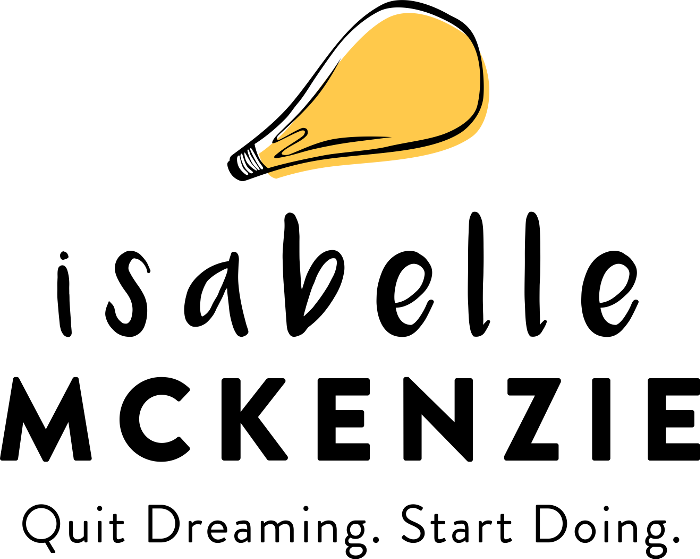


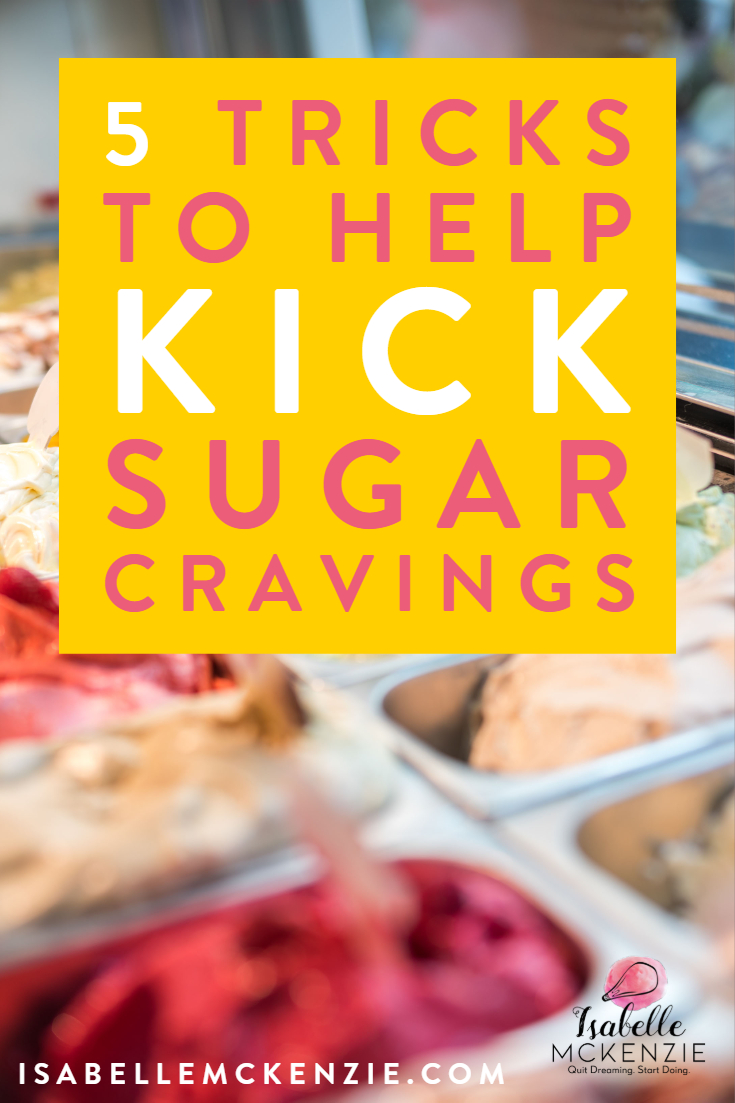
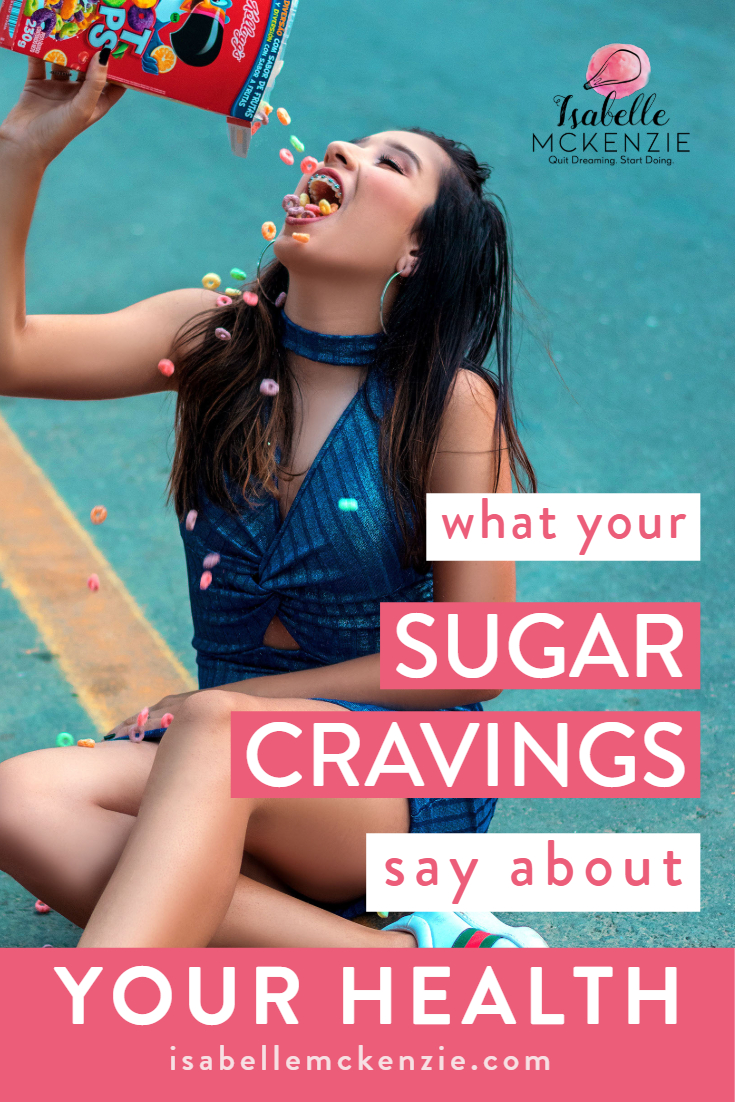




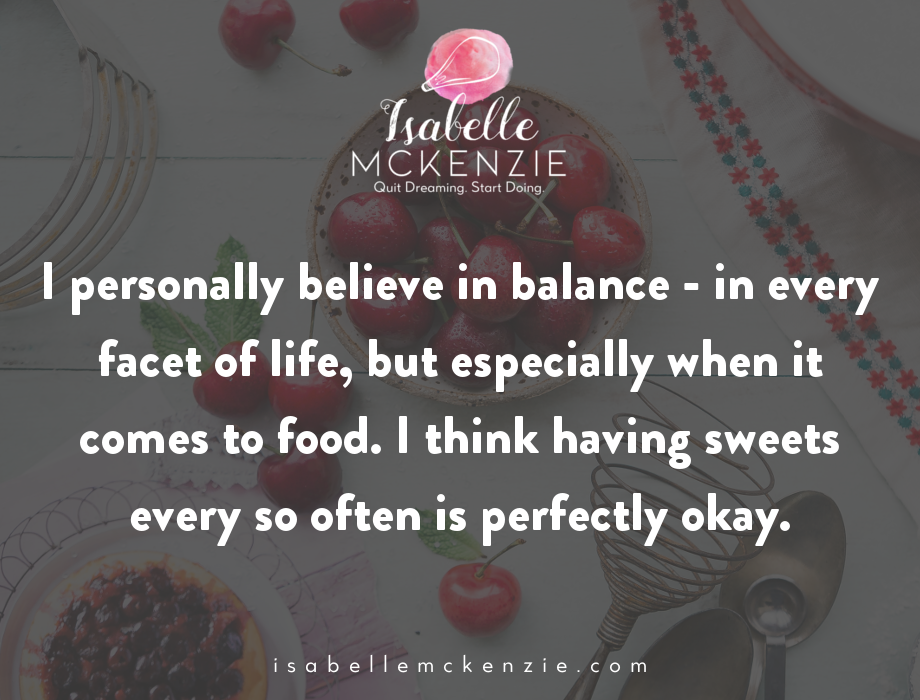












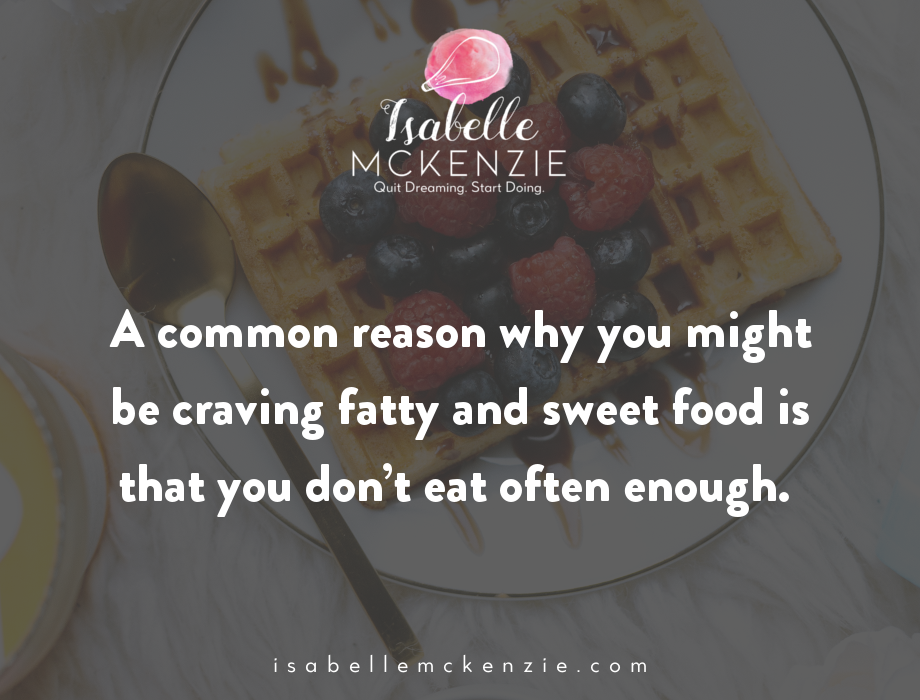
























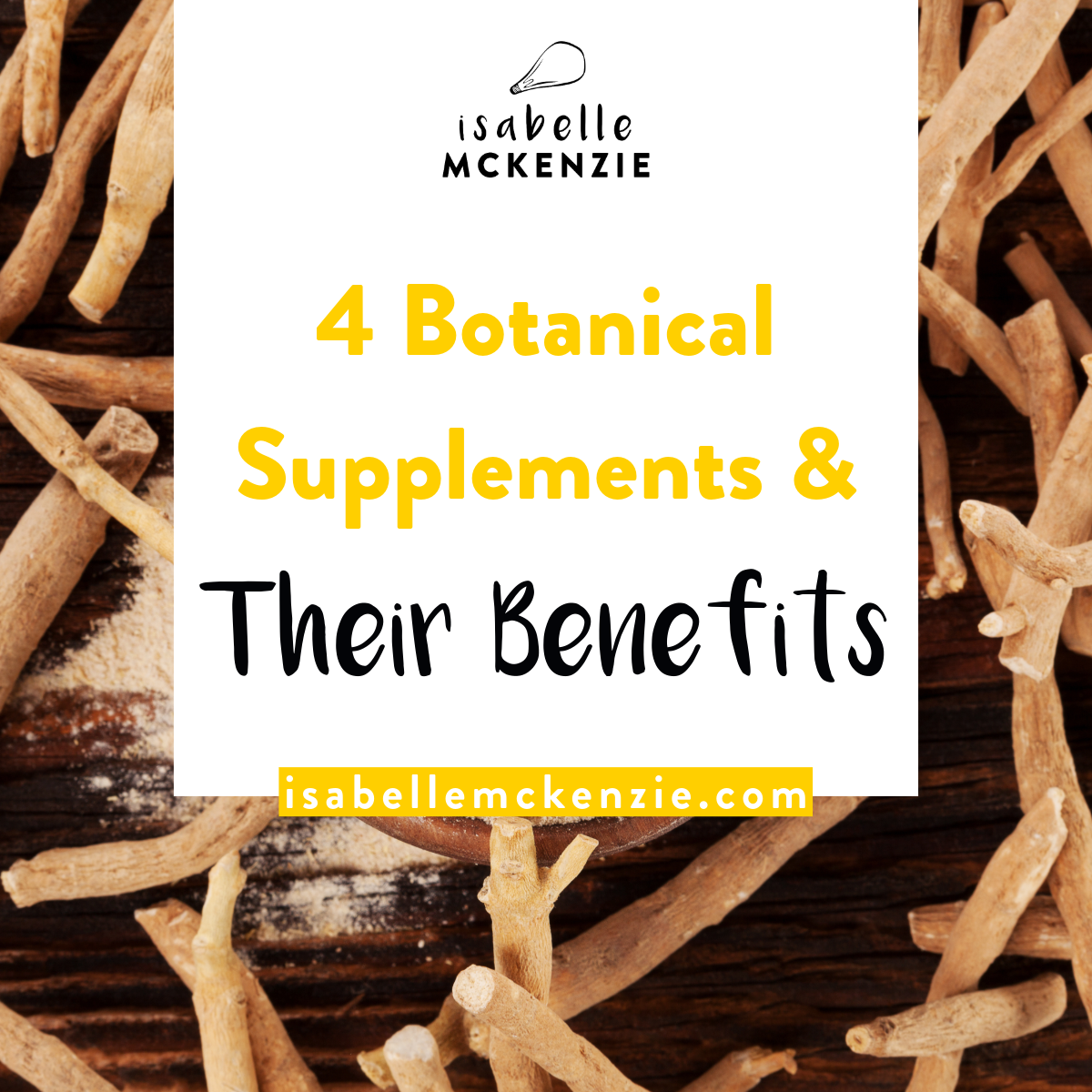
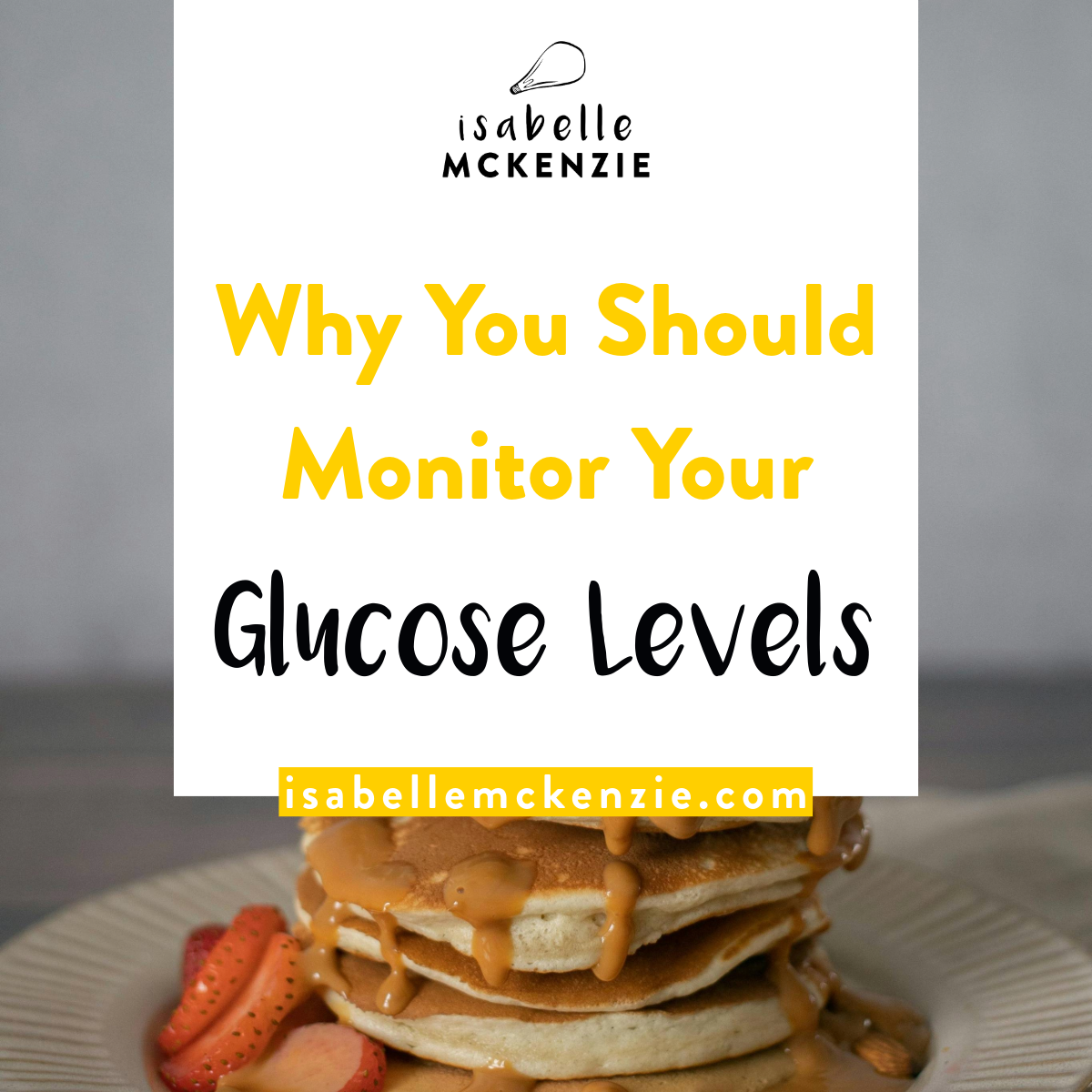



Here’s a Free Powerful Training for You!
Join us to learn how to banish binge/stress eating, food obsession and food cravings, and get lean and healthy for good (without struggling) ... especially for people who have tried everything and are still stuck.
SAVE MY SEAT